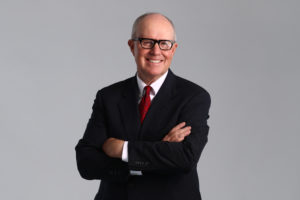According to Gerry Gensler, SEC chairman as of 2022, “…the crypto asset class has ballooned…the asset class purportedly is worth about $1.6 trillion, with 77 tokens worth at least $1 billion each and 1,600 with at least a $1 million market capitalization.” Crypto assets are exciting, but let’s take an industry-specific use case example to see how blockchain might work in healthcare.
In this article we examine one venture that is focused on solving some of the problems of exchanging documents securely in medicine. Healthcare is a siloed industry with many borders. A ‘borderless’ approach to medicine could bring many benefits. Let’s take a look at Medicalchain.
Medicalchain and Blockchain

Medicalchain’s decentralized platform allows fast, secure, and transparent medical data exchange and usage. It enables a variety of healthcare practitioners, such as doctors, laboratories, pharmacists, hospitals, and insurers, to request access to an individual’s medical records. Interaction with the documents is secure, transparent, and recorded on Medicalchain’s distributed ledger while maintaining the patient’s privacy (Medicalchain SA n.d.).
Medicalchain showcases the solution’s features and provides an overview of how the initiative stores medical information on a blockchain. See Medicalchain’s use of blockchain technology. (Source: https://youtu.be/CsxjlsBYmrI)
What is the business problem that the Medicalchain addresses?
Medicalchain proposes to break through the many siloes in healthcare (we call them ‘borders’), enabling multiple participants in the value chain to view patient data and update it for a fixed period, adding data to a distributed single source for the patient information that is accessible to all members of the care team and the patient’s insurance.
How does Medicalchain make use of blockchain technology?
Medicalchain’s tokens (MedTokens) are issued to create a new blockchain-based healthcare ecosystem. Patients use tokens to pay for their records to be housed on Medicalchain’s private blockchain. Healthcare professionals are rewarded with tokens to remotely review medical information and provide advice or a second opinion on a case. Pharmaceutical and other research companies reward patients with tokens in exchange for accessing their records for research and experimental purposes (Medicalchain SA n.d.).
Is there any evidence that the project is aiming to solve the last mile adoption problem in crypto-economics for healthcare?
No. In fact, its only proof point is in the U.K. health system, which is very different from the U.S.
What choices did the leadership team make regarding a ‘lean canvas’ for the venture (e.g., terms of customer, technology, identity, cost of delivery, and competition of blockchain and tokens in healthcare?
The team has chosen to implement in the U.K., which is a very different ecosystem that the U.S. Because the U.S. healthcare system is so different and complex, a proof of concept in the U.S. would be essential to value the venture’s potential in the world’s largest healthcare market (valued by total expenditures including insurance reimbursements).
What unique features does Medicalchain’s token do have promise for the future?
The Medical chain token allows multiple participants from a patient’s care team to update a single record. As the company’s solution states, “Medicalchain uses blockchain technology to create a user-focused electronic health record whilst maintaining a single true version of the user’s data.”
This concept has appeal since in the U.S., a ‘longitudinal health record’ is the holy grail of medicine, e.g., the ability to view everything about a patient regardless of where they have life events or receive their healthcare, over the entire lifespan of the patient.
Related Posts
Blockchain and healthcare intellectual property
